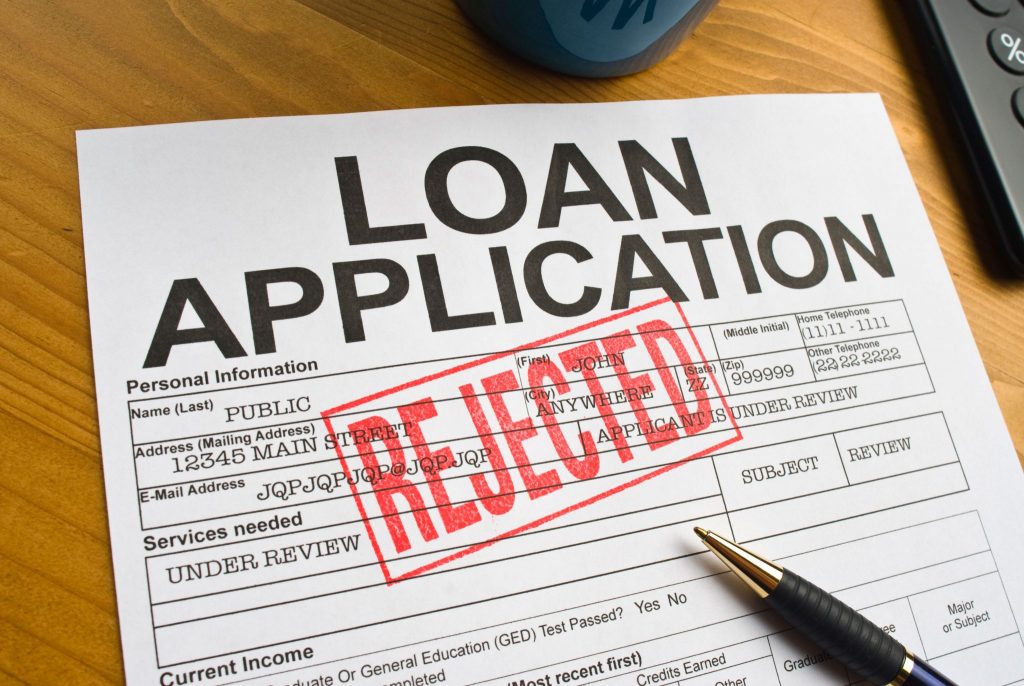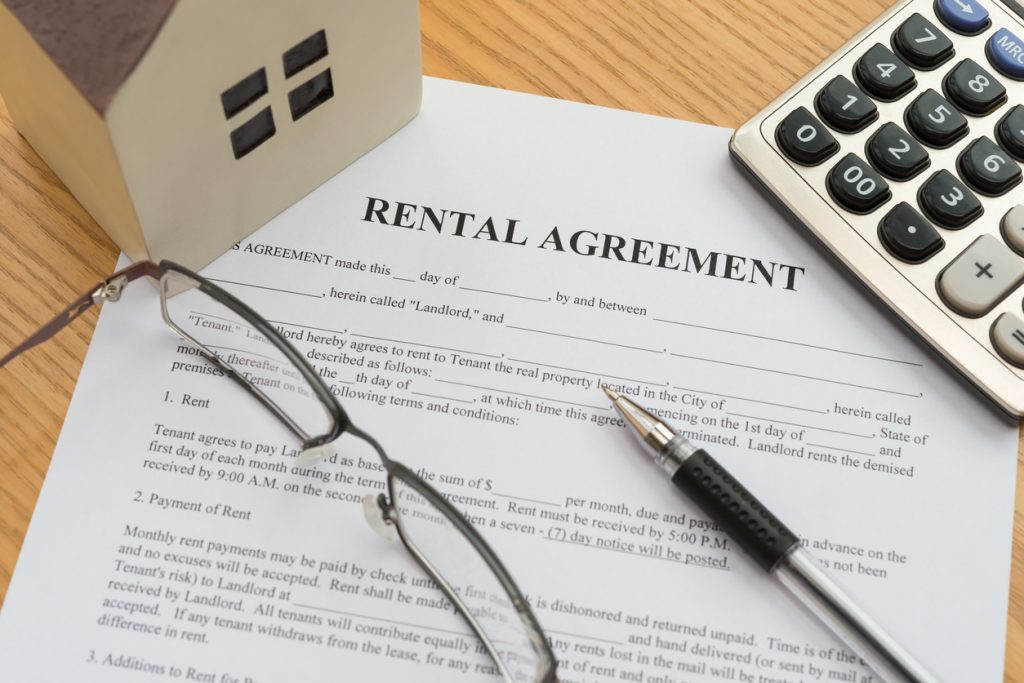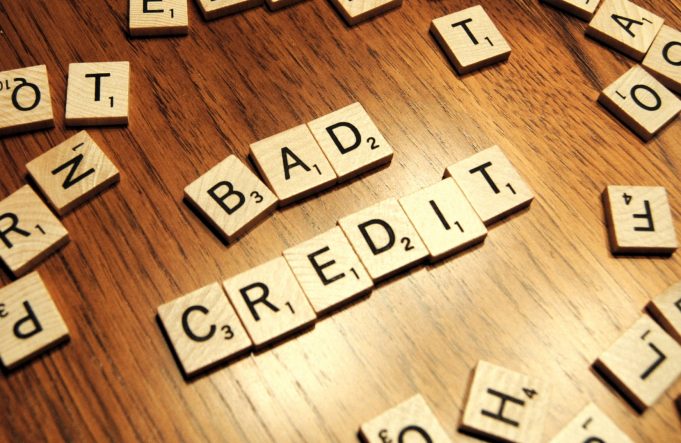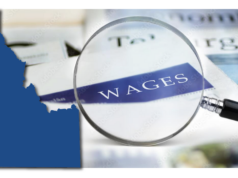You don’t seem to feel the repercussions of maxing out your credit card or even taking your sweet time when making loan or bill payments. Maybe you just want to know how it feels rocking that new pair of Jordans or sitting in a new Mercedes.
However, the day of reckoning is slowly dawning and before you know it, you’ll be deep in debt. That’s not all, your credit score will follow you down there. What’s more, lenders will be hot on your heels trying to recover the money you borrowed, and they’ll have no care in the world about your financial woes.
By this time, you’ll be scratching your head trying to find a way out of this crisis. One solution may be to consolidate your loans but with bad credit, you’ll be out of luck. There’s more, though. Here’s how poor credit will affect your life.
1. Getting Rejected for Loans

This is the most obvious side effect of having bad credit. All lenders have a certain cut-off level or quality level that they use to gauge borrowers. Having a bad credit score means you fall below this level, and that will dent your chances of securing a loan.
Generally, the lower the score, the more difficult it becomes to land a lender willing to issue a loan. You may be close to the subprime levels, but the lender will still turn down your loan application. For instance, your score could be 698 yet the lender’s cut-off level is 702. Now, this is agonizingly close, but those 2 points decide whether or not you’ll get approved for a loan.
2. High Rates and Restrictive Loan Terms
Say you get lucky, and the lender approves your loan application. By all means, for a person with bad credit, this is a win. However, the real war lies not too far ahead. The lender will notice the poor credit and for that, you need to prepare for high-interest rates and other restrictive terms that’ll have you thinking twice about the loan.
According to RealisticLoans, bad credit translates to high risk for the loan lenders, which is why they’ll impose high-interest rates for such borrowers. Keep in mind, many lenders are cagey with information on how you’re less than perfect credit hurts you. However, the bottom line is that you’ll have to put up with tighter terms.
For a borrower with an excellent score, lenders will be lenient with the overall terms. On the other hand, the effects of the high interest and stringent terms can be far-reaching. If you’re seeking a mortgage with a poor score, though, the lender will require you to make a 15 or 20% down payment.
For a $300,000 home, this translates to $45,000 to $50,000. A more trustworthy borrower, on the other hand, will only have to pay $15,000—5% of the total price. The same applies to the interest rate. Even the slightest deviation can pile thousands of dollars on the overall cost of the mortgage.
3. Difficulty in Renting an Apartment

Depending on where you live, a landlord may decide to run a check on your credit when you apply for a lease. It may seem intrusive, but according to statistics, people with low credit scores are less likely to pay their rent on time.
For this reason, landlords will be on the lookout for applicants with a habit of bankruptcies, foreclosures, late payments, and delinquencies in their reports. If you fall in any of these categories, then it will have a huge say in where you’ll rent an apartment.
Landlords with high-end apartments will hold their clients to high credit standards for obvious reasons. Besides, they have the liberty to pick who lives in their apartments. Some of them won’t rent if your score falls below 640.
On the contrary, landlords with substandard apartments, less in demand, don’t have the luxury of picking renters. Therefore, chances are they’ll let low scores slide.
4. Failure or Difficulty in Securing a Cell Phone Contract
Yes, cell phone companies will also be on your case, and this may come as a surprise because finding a place to live or a job could warrant a credit check. However, you already know many people, especially the young, fail to clear their cell phone bills.
Service providers reason the same way as landlords. If you intend on extending your contract, the provider will want to know whether you’ll be reliable going forward. Again, high-risk customers will have to settle for prepaid plans.
Even if you want a month-to-month contract, the provider will still want to run a credit check because this plan is expensive and, you may rack up huge sums. All is not lost, however, but you may have to dig deeper into your pocket or suffer inconveniences.
5. High Insurance Premiums

They, too, check your credit when applying for insurance coverage, although this will depend on the state you live in. At the top of their checklist are outstanding balances and on-time payments. If you fall short of the cut-off levels set by the insurance company, you’ll have to pay higher premiums compared to someone with excellent credit.
6. Difficulty Securing Employment
There may be little correlation between job performance and employee credit. This is according to a study published in 2012 in the Psychologist-Manager Journal. However, this doesn’t appear to stop employers from running credit checks on potential employees
Having said that, certain jobs such as those in the finance industry require high levels of credibility and responsibility. A potential employee with outstanding bills, bankruptcy records, and high debt balances in their records has a slim chance of getting a job. A survey done by Demos revealed that 25% of job applicants had their credit checked, while another one in seven were informed that their poor credit was the reason they failed to secure employment.
Final Thoughts
It goes without saying that having good credit will make your life easier. Despite that, it’s not a life sentence if you had a bad one. You can repair your credit using several tips offered by financial experts.
However, keep in mind that it took time for you to end up with bad credit. Therefore, don’t expect an overnight miracle when repairing your credit. Paying your bills properly, patience and discipline will be your greatest allies in this journey.









